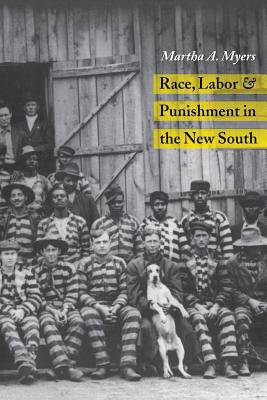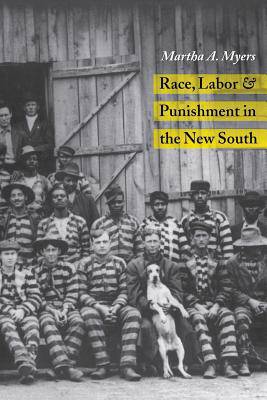
- Retrait gratuit dans votre magasin Club
- 7.000.000 titres dans notre catalogue
- Payer en toute sécurité
- Toujours un magasin près de chez vous
- Retrait gratuit dans votre magasin Club
- 7.000.0000 titres dans notre catalogue
- Payer en toute sécurité
- Toujours un magasin près de chez vous
Description
Georgia embraced the concept of the penitentiary as a form of social control earlier than most of its southern neighbors. Its penal code of 1816 replaced or curtailed such traditional punishments as whipping, the pillory, fines, or death. Georgia's control over felony convicts effectively began in 1817, when the state prison at Milledgeville accepted its first convict. Martha A. Myers finds that Georgia also led the region in embracing the convict lease system as an alternative to incarceration. In Race, Labor, and Punishment in the New South, she examines the social, political, and economic forces that shaped punishment over a seventy-year period. Between 1870 and 1940, Georgia's system of punishment shifted from capital and corporal punishment to hard labor in the penitentiary, then to the convict lease system, then to county-run chain gangs, and then back to incarceration in prison. This book forges a connection between these dramatic shifts and analyzes three facets of punishment for black and white men: rates of admission to the penitentiary, the harshness of sentences, and the ease with which felons achieved release from the penitentiary. Her findings challenge the conventional notion that hard times invariably prompt harsh punishment. In uncovering the complex link between social change and southern punishment, Myers reveals the poverty of current theories of criminal punishment. Martha A. Myers is a professor of sociology at the University of Georgia. She is coauthor, with Susette M. Talarico, of the award-winning The Social Contexts of Criminal Sentencing.
Spécifications
Parties prenantes
- Auteur(s) :
- Editeur:
Contenu
- Nombre de pages :
- 326
- Langue:
- Anglais
- Collection :
Caractéristiques
- EAN:
- 9780814250013
- Date de parution :
- 01-10-98
- Format:
- Livre broché
- Format numérique:
- Trade paperback (VS)
- Dimensions :
- 152 mm x 228 mm
- Poids :
- 458 g

Les avis
Nous publions uniquement les avis qui respectent les conditions requises. Consultez nos conditions pour les avis.






